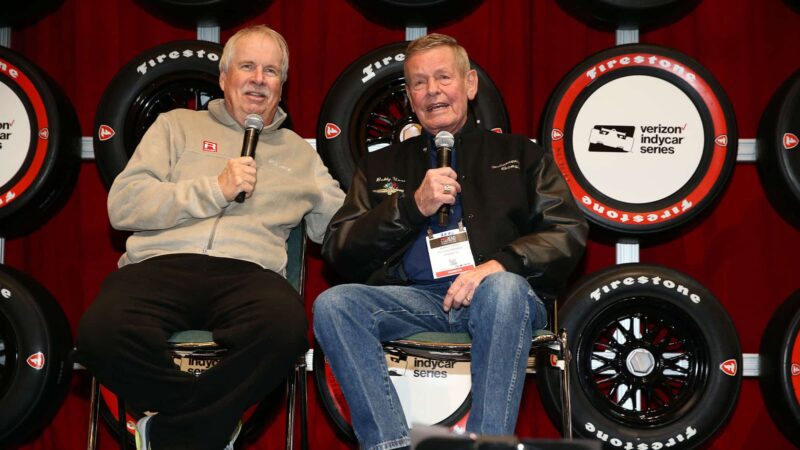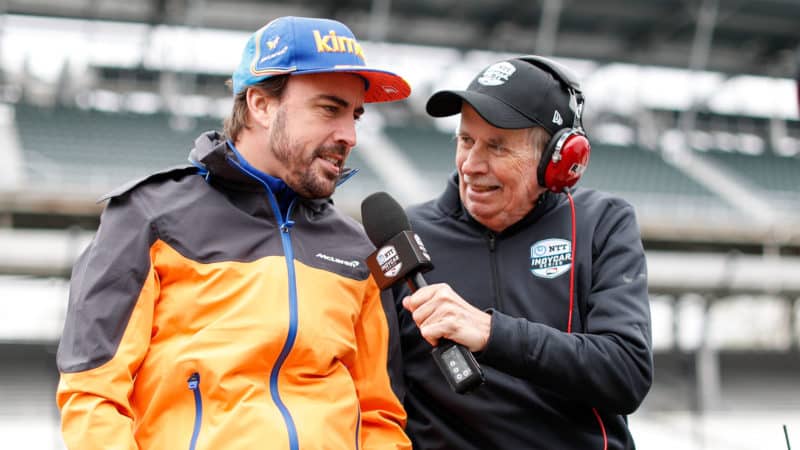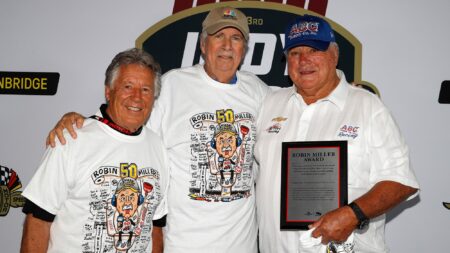Miller began working at The Indianapolis Star newspaper a month later, first talking his way into the sports department where he was tasked with manning the phones. He then got his first writing gig when the paper needed someone to be a correspondent on the local Indiana Pacers basketball team.
It was in this role that Miller made a name for himself as an outspoken scribe before transferring his skills to motor sport coverage. He would eventually go on to work for ESPN, SPEED and NBC, becoming a popular television personality.
During the ’70s Miller decided to don the crash helmet himself, running a midget car on the Midwestern race circuit. Although at times clocking respectable results Miller also had his fair share of calamity: buying a trailer which was too narrow for his car; forgetting to fasten his seat belts before setting off in a race and on a separate occasion completely destroying his car after flipping it into a concrete wall. Miller wasn’t shy of sharing these embarrassing stories in his broadcasting career, but still managed to speak with authority on the subject.
On the safer side of barrier, Miller became a force in motor sport journalism, his unrelenting work ethic and ability to say things how he saw it marking him out amongst his peers.
This outspoken nature led him to being fired after 33 years by The Star for criticising the Indy Racing League and its President Tony George, before Champ Car then pulled his media credentials after predicting the series’ potential demise.

Miller could count a multitude of Indycar legends amongst his friends
IndyCar
However, his honesty in writing and on-screen appearances only fuelled his popularity. Other publications Miller contributed to included Sports Illustrated, Car and Driver, Autoweek, RACER and indeed Motor Sport – so popular in fact, that he became more well-known than many of the drivers he reported on.
His presence in the pit lane also endeared him to drivers, numbering A.J. Foyt, Mario Andretti, Al and Bobby Unser, Parnelli Jones and Dario Franchitti amongst his close friends.
“We got to be really good friends over the years because we respect each other,” Foyt told Preston Lerner in a recent tribute. “Like a lot of people, I didn’t like what Robin wrote at first. But after awhile, I realised that 99 percent of what he wrote was true. I don’t know where in the hell he finds out all the crap he finds. He had a knack for figuring it out or guessing it, and when he guessed, he usually guessed right.”


